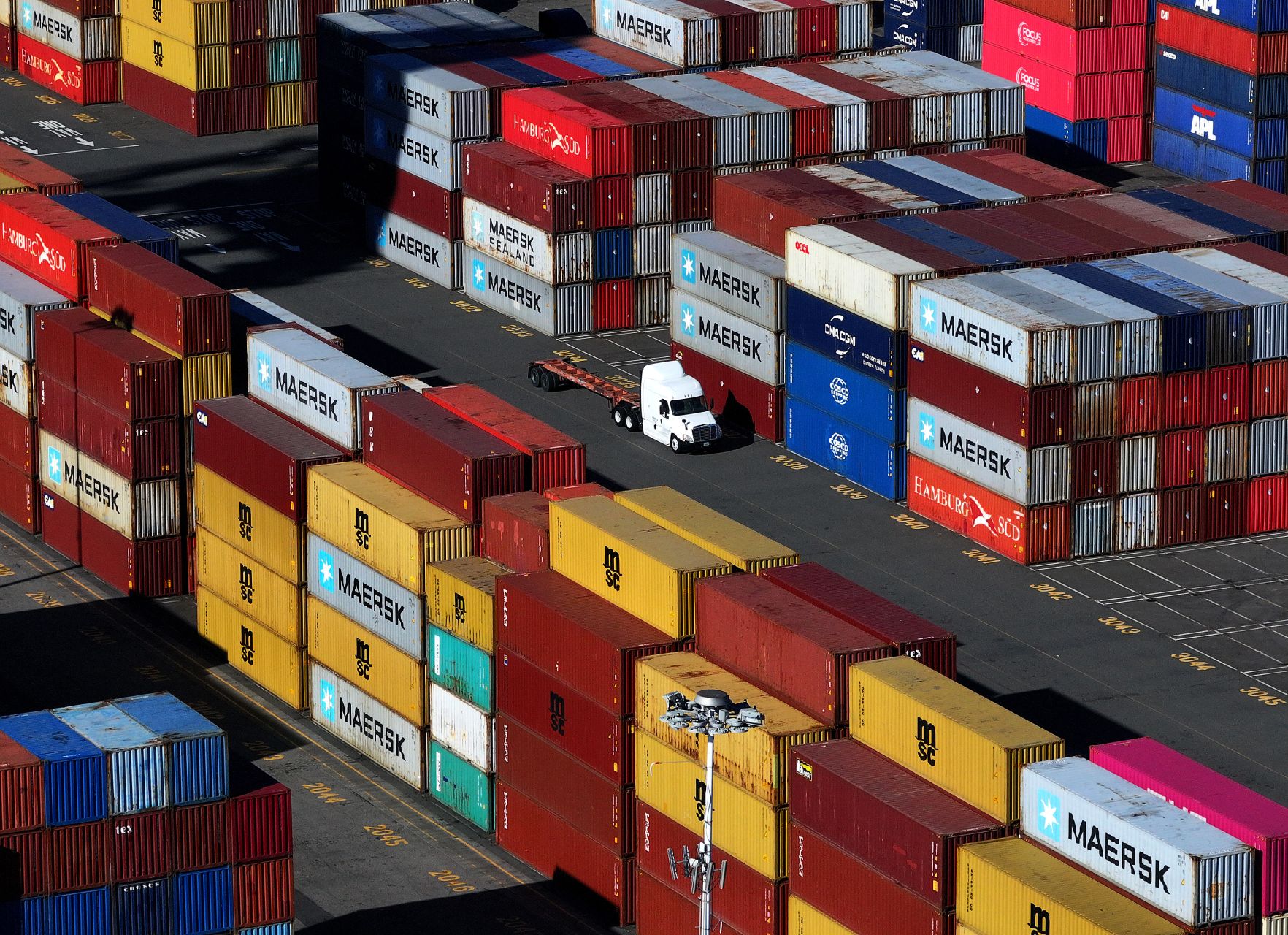- Home
- Middle East
- EU Slams Trump Tariffs, Says Will 'Respond Firmly' If Targeted

In an aerial view, shipping containers are stacked on a dock at the Port of Oakland on December 09, 2024 in Oakland, California. ©Getty Images via AFP
The European Union on Sunday blasted U.S. President Donald Trump's sweeping tariffs on Canada, Mexico, and China, warning that the 27-nation bloc would retaliate "firmly" if targeted.
Brussels had previously hoped to avoid a trade conflict with Trump through negotiation.
However, on Friday, the U.S. president doubled down, stating he "absolutely" planned to target the EU in the future, following his imposition of tariffs on his North American neighbors and China.
"The European Union regrets the U.S. decision to impose tariffs on Canada, Mexico, and China," said a spokesperson for the European Commission.
"Tariffs create unnecessary economic disruption and drive inflation. They are harmful to all parties."
The spokesperson added that "the EU would respond firmly to any trading partner that unfairly or arbitrarily imposes tariffs on EU goods."
"As of now, we are not aware of any additional tariffs being imposed on EU products," the spokesperson continued.
He emphasized that the 27-nation EU remained committed to low tariffs as a way to "drive growth and economic stability within a strong, rules-based trading system."
He also reiterated the EU's commitment to its trade and investment relationship with the United States — "the largest in the world."
"There is a lot at stake," said the spokesperson. "We should both be looking at strengthening this relationship."
Being 'Aggressive'
Europe must "engage in a balance of power" in response to Trump’s tariff threats, said French Industry Minister Marc Ferracci, calling for a "firm" stance against the U.S. president.
"Trade negotiations with Donald Trump must acknowledge a balance of power," Ferracci said, following the U.S. decision to impose tariffs.
With Trump also threatening sanctions against the EU, "it is clear that we must respond," Ferracci added, while awaiting further decisions from the U.S. administration.
According to Ferracci, "An effective response must target products that matter to your counterpart and their country." He continued, "It must be, as we say, 'aggressive'—meaning it should impact the U.S. economy to create a credible negotiating threat."
"We must shed our naivety," Ferracci said, advocating for stronger industry protection through a "Buy European Act" to prioritize European-made products.
"Our priority is to remain united and leverage the strength of our union—a common market that the U.S. cannot ignore," he emphasized.
"We must not start by making concessions or promising to buy more American goods in certain industrial or agricultural sectors," Ferracci insisted, as the EU remains divided between a purely "defensive" approach—purchasing American liquefied natural gas or weapons to avoid a trade conflict with Trump—or a more "offensive" strategy involving potential countermeasures.
With AFP
Read more



Comments